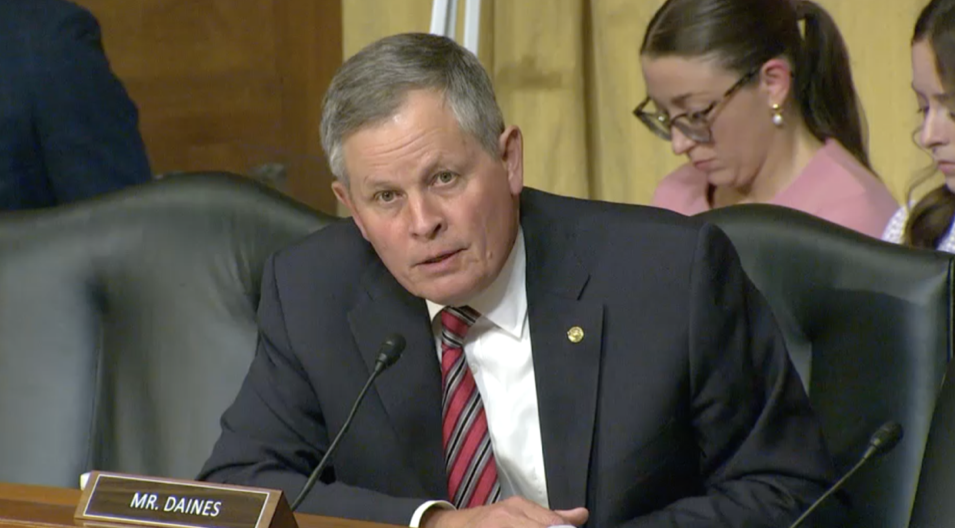WASHINGTON — Senator Steve Daines questioned Health and Human Services Secretary Robert F. Kennedy Jr. about the safety of mifepristone during a Finance Committee hearing this week, citing new research that suggests adverse effects from the abortion pill occur far more frequently than federal regulators estimate.
Daines referenced a study analyzing 865,000 insurance claims that found nearly 11 percent of women experienced serious adverse events within 45 days of taking mifepristone — a rate 22 times higher than the FDA’s longstanding estimate of less than 0.5 percent.
“For years we’ve heard the misleading and frankly very harmful lie that’s being sold to women that this drug is, and I quote, ‘safe as Tylenol,’” Daines told Kennedy during the hearing. “These lies sadly have real-world consequences. Just last year, two women died as a result of taking chemical abortion pills because they were able to access them without appropriate medical oversight.”
The Montana Republican pressed Kennedy on whether the Department of Health and Human Services would review the new safety data and replicate similar studies. Kennedy responded that “those studies are progressing and they’re ongoing” and committed to keeping Daines’ office informed.
Since mifepristone’s approval 25 years ago, the FDA has steadily reduced safety requirements, according to Daines. The agency no longer requires doctor prescriptions, follow-up visits, or adverse event reporting, and now allows the medication to be distributed by mail.
During the COVID-19 pandemic, the FDA also permitted healthcare providers to prescribe abortion drugs via telemedicine appointments. Daines asked whether Kennedy would reverse this policy change as other COVID-era emergency measures are rolled back.
“Senator, I need to get back to you on that I don’t know if the White House has yet taken a position on that,” Kennedy replied.
The exchange comes as Montana lawmakers examine chemical safety through a different lens. The state’s Water Policy Interim Committee is scheduled to meet October 20 to begin implementing House Joint Resolution 44, which calls for studying endocrine-disrupting chemicals and water quality.
The connection between pharmaceutical hormones and water quality is well-documented. Hormonal medications work by altering the body’s endocrine system, which regulates reproduction and other bodily functions. Synthetic hormones from medications, including those used in birth control, enter waterways primarily through wastewater after a significant portion is excreted by users. Most wastewater treatment plants were not designed to remove pharmaceutical compounds, allowing these chemicals to be discharged into rivers and lakes where they can disrupt the endocrine systems of aquatic life.
The resolution, passed during the 2025 legislative session, directs the committee to analyze research on health effects of endocrine-disrupting chemicals and determine their prevalence in Montana’s water systems. The study stems from concerns about declining human reproduction rates and links to environmental chemical exposure.
“Declining sperm counts, diminished ovarian reserves, and increasing miscarriage rates could eventually threaten survival of the human race,” the resolution states, calling for examination of chemical threats in drinking water.
Daines also used his questioning time to advocate for Montana’s Medicaid expansion program. He praised Governor Greg Gianforte and Health Director Adam Brereton for submitting a waiver application to the Centers for Medicare and Medicaid Services that would require community engagement and enhanced cost-sharing for working-age adults in the program.
Kennedy committed that CMS would “work quickly” in considering Montana’s waiver application.
The Finance Committee hearing highlighted ongoing debates over pharmaceutical regulation and safety oversight as the Trump administration reviews policies implemented during previous administrations.
“Mr. Secretary, I am grateful that you and FDA Commissioner Makary have already begun the process of reviewing this new data on the safety,” Daines said, referencing discussions during Kennedy’s confirmation hearing.
